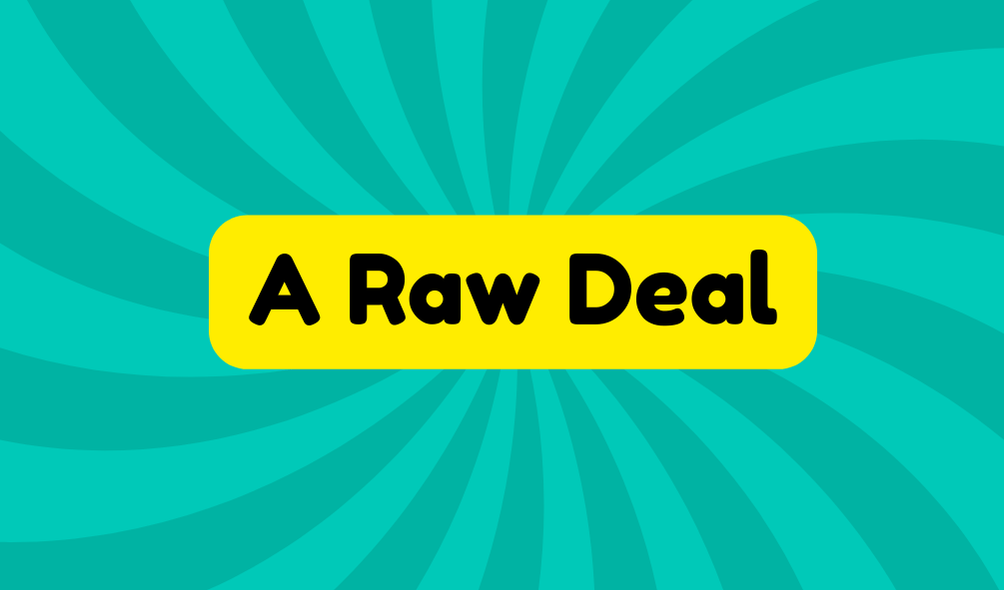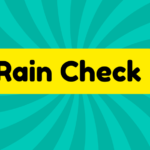A "raw deal" refers to unfair treatment or a situation where you get less than what you deserve. Originating in early 20th-century America, the phrase highlighted social inequities of that time. Imagine working hard but receiving a small paycheck—that's a raw deal. You often hear it when discussing unequal promotions or uneven workloads in school projects. This expression reminds us of the injustices people can face and remains relevant today as it connects personal struggles with larger societal issues. For a deeper understanding of its applications and examples, you'll find more insights ahead.
Synonyms
When you think about the phrase "raw deal," several synonyms come to mind that capture its essence of unfair treatment. These alternatives often reflect society's ongoing struggle for social equity. Here are some terms that resonate with the idea of feeling cheated:
- Unjust treatment
- Inequitable deal
- Disadvantaged position
- Bad break
- Injustice
Each of these phrases highlights what many experience—disappointment over being treated worse than others. When you encounter such situations, it's essential to recognize that they're not isolated incidents; they signify a larger pattern of unfair treatment that many face. Using these synonyms can help articulate your experiences while advocating for a more equitable society. Recognizing injustice is the first step toward fostering change.
Example of Sentences
You might feel a "raw deal" in various situations that highlight unfairness. It's important to recognize these raw deal experiences and engage in fairness discussions. Here are some examples to contemplate:
- You realize everyone else is promoted, but you're left behind.
- You work overtime, but your paycheck barely reflects the effort.
- During a group project, you do all the work while others take credit.
- You notice friends getting better grades despite similar efforts.
- Your talent gets overlooked for someone else's popularity.
These situations can spark conversations about inequity and justice. Remember, recognizing a raw deal is the first step toward seeking fairness and advocating for a more just environment, both personally and collectively.
Origin
The concept of a "raw deal" has its roots in early 20th-century America, where it emerged as a common expression reflecting the public's sentiments regarding unfair treatment. In this historical context, the phrase encapsulated a growing awareness of social inequities, speaking to the frustrations of individuals feeling sidelined by a system that primarily favored the few. This cultural significance evolved as the term entered everyday conversations, highlighting feelings of injustice and the pervasive belief that some people routinely received better treatment. As you explore its origins, consider how this expression not only addresses personal grievances but also serves as a lens through which we examine broader societal issues related to fairness and equity in our communities.
Collocations
Recognizing the collocations related to "raw deal" enhances your understanding of its usage in various contexts. By examining these phrases, you can grasp how unfair treatment and societal values interplay. Here are some common collocations that you'll find inspiring and relatable:
- The raw deal you got
- Deal with unfair treatment
- Experience a raw deal
- Perceive as a raw deal
- Suffer a raw deal
These expressions highlight how unfairness isn't just a personal issue but also a reflection of broader societal norms. They emphasize that many share similar feelings of injustice, pushing us to question what fairness really means. By recognizing these collocations, you elevate your comprehension of discussions around equity and social responsibility.
How to Use in Everyday Language
Using "raw deal" in everyday language is straightforward and can effectively convey feelings of unfairness or disappointment. When you encounter situations where you feel slighted, using this phrase can highlight the raw deal implications of unequal treatment. For instance, in workplace fairness discussions, you might say, "I got a raw deal on that project." This not only expresses your feelings but prompts others to reflect on their actions. The term encapsulates a collective sentiment about equity, urging a critical view on societal norms. Remember, it serves as a powerful tool that can amplify voices in conversations about injustice. So, don't hesitate to employ it when you sense something's awry in your experiences.
Why Is It Still Relevant Today?
Amid ongoing discussions about equity and justice, "raw deal" remains a potent phrase in today's society. You can't ignore the social implications of feeling marginalized or unfairly treated. Many people share personal experiences that highlight the reality of being at a disadvantage, whether in workplaces, schools, or community interactions. This expression captures the frustration of those who've faced systemic barriers. As communities endeavor for innovation and change, discussing "raw deals" helps bring attention to inequalities. It prompts you to think critically about fairness in your own life and inspires action to demand better. In a world that craves progress, acknowledging and addressing these injustices is essential for fostering a more equitable future.







